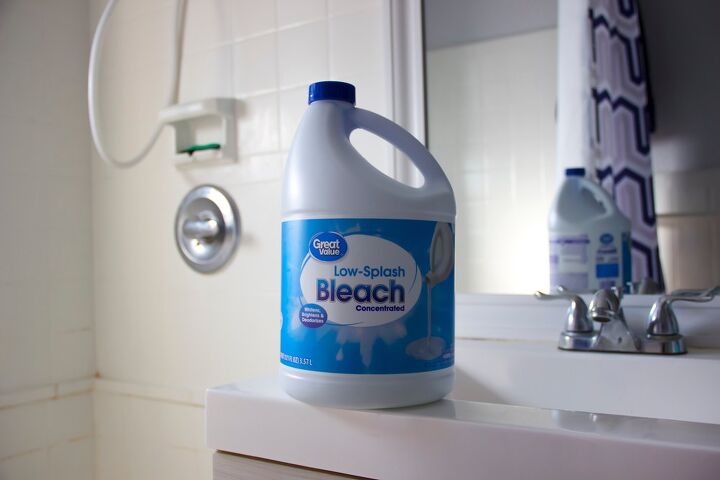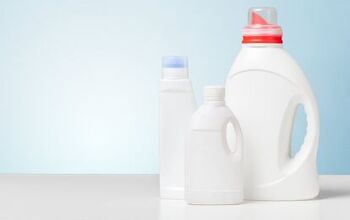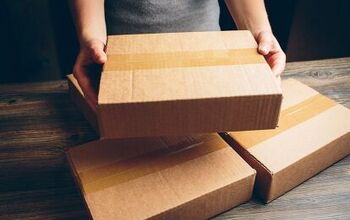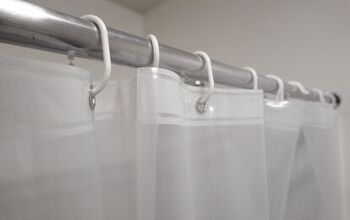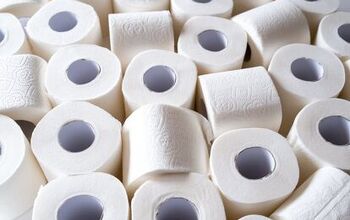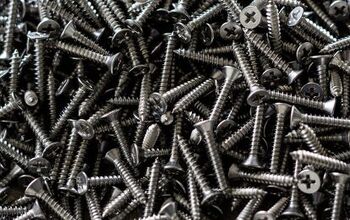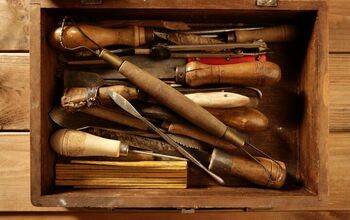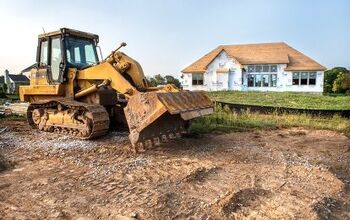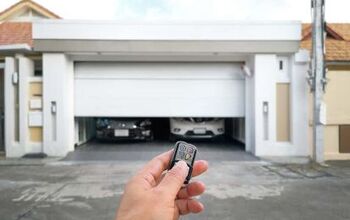Can You Recycle Bleach Bottles? (Find Out Now!)

Bleach keeps your whites white and your home clean. The plastic bottles that bleach comes in are pretty bulky, and a single bottle fills your trash bin. Instead of tossing them in the trash, find out if you can recycle bleach bottles.
Bleach bottles are made with HDPE plastic and are 100% recyclable, including the cap and spout. Put it in your recycling bin, or take it to a recycling center. Bleach is bad for the environment, so rinse out the bottle. Don’t pour bleach down the drain. Collapse or cut up the bottle so it takes up less space.
Understanding how to best recycle bleach bottles keeps the job simple.
What Types of Bottles Can You Recycle?
Glass bottles are recyclable. As manufacturers move away from using glass for bottles and jugs, plastic has become a common material for making these types of containers. Not all plastic is the same, though, so you need to know which plastics can be recycled.
Polyethylene Terephthalate
Polyethylene terephthalate (PET) is a type of plastic that is used for plastic cups and bottles for water and soda. It is lightweight, durable, and clear. PET is designed to be reused, and it is 100% recyclable.
High-Density Polyethylene
High-density polyethylene (HDPE) is used for milk jugs, water jugs, bottles, and cups. It comes in different thicknesses, from rigid to semi-flexible. HDPE can be recycled and used for other products made from the same type of plastic.
Polyvinyl Chloride
Polyvinyl chloride (PVC) is a rigid plastic that is typically used for tubes and pipes. It is often used for home plumbing. PVC can be recycled, but it takes some special handling. Don’t put PVC plastic in your regular recycling bin. Take it to a local processing center.
Low-Density Polyethylene
Plastic bags and those plastic loops around canned beverages are made from low-density polyethylene (LDPE). Generally speaking, LDPE can be recycled. Much of it isn’t because it gets stuck inside traditional recycling machines. This is why there are special drop off points in grocery stores for plastic bags.
Polypropylene
Polypropylene (PP) is used for vehicle parts, such as dashboards, as well as food storage containers. Historically, PP has not been recyclable. Advancements in recycling technologies means that PP can now be recycled. It needs to be taken to special drop off points. Don’t put PP products in your regular recycling bin.
Polystyrene
Polystyrene (PS) is a type of plastic that is used for utensils, cups, and plates. Also known as Styrofoam®, PS plastic can now be recycled. Not every recycling center accepts PS, so check before dropping it off.
Other Types of Plastic
Other types of plastic that may be recyclable include nylon and acrylic. Check with your local recycling center to see if they take these types of plastics.
How Do I Know the Type of Plastic for a Bottle?
You don’t have to be an expert in plastics to know the type used for your items. Look at the bottom of the item. There’s a number in the middle of the recycling symbol (three arrows in the shape of a triangle). This number is the Resin Identification Code. Here’s what the code means.
- 1: PET plastic
- : HDPE plastic
- 3: PVC plastic
- 4: LDPE plastic
- 5: PP plastic
- 6: PS plastic
- 7: Other types of plastic
Can You Recycle Bleach Bottles?
Bleach bottles are made with HDPE plastic; therefore, bleach bottles can be recycled. HDPE is ideal for storing bleach because it has a good level of chemical resistance. Bleach can eat through other types of plastic.
Can You Recycle Caps and Spouts on Bleach Bottles?
The caps and spouts on bleach bottles can be recycled. They may be made with another type of plastic, but you can put them in the recycling bin.
Can You Put Bleach Bottles in Recycling Bins?
You can put bleach bottles in your recycling bin. Make sure the bottles are empty and clean before putting them in the bin.
Is Bleach Bad for the Environment?
If you use bleach as directed, it is considered environmentally-friendly. Bleach can, though, hurt the environment if it is used improperly. It kills aquatic life, and it is harmful to pets and children. Bleach destroys beneficial microorganisms in the soil, as well as plants.
Do You Need to Clean Bleach Bottles for Recycling?
You should clean bleach bottles before leaving them for recycling. Not only is the bleach bad for the environment, but so is any type of fragrance that is added to the bleach.
How Do You Dispose of Bleach Bottles?
The best way to dispose of bleach bottles is to have them recycled. If absolutely necessary, you can also toss them in the trash. Make sure to clean out the bottles. Collapse the bottles first. Remove the cap, and squeeze the bottle to remove the air. Replace the cap. This minimizes the amount of space needed for the empty bottle in the recycling bin or landfill.
Bleach Bottle Cleaning
Before you clean out your bleach bottle, put on some rubber gloves. The bleach damages skin and clothing. Rinse out the bleach residue. Smell the bottle after each rinse to see if there is still bleach inside.
Can You Pour Bleach Down the Drain?
You should not pour undiluted bleach down the drain. Bleach is harmful to the environment. Pouring it down your drain may also damage your pipes. Bleach combines with other substances in your pipes and produces noxious fumes.
Don’t dump bleach out in your yard or driveway. The bleach destroys the soil, and it will run down your driveway into the storm drains. You can actually be fined for pouring bleach into the storm drains.
Related Questions
Does bleach remove rust stains on a toilet?
Bleach will not remove rust stains on your toilet or tub. Instead, use a product that is made specifically for removing rust stains.
How do you sanitize surfaces with bleach?
Mix 1 cup of bleach with 1 gallon of water. Use a spray bottle to apply the solution to the surface. Rinse with water. For tough stains, scrub with a stiff brush.
Conclusion
Bleach bottles are made with HDPE plastic, and they are 100% recyclable. Instead of tossing them in the trash, put them in your recycling bin.

Jennifer L. Eggerton loves being hands-on, whether it's with a home DIY project, making repairs, re-decorating a room, or keeping life organized. She enjoys helping people by sharing her knowledge, insights, and experiences, as well as her lessons learned. In addition to her work as a writer, Jennifer is a Jeep® overlander, self-published author, and nature photographer who loves being outdoors.
More by Jennifer Eggerton



